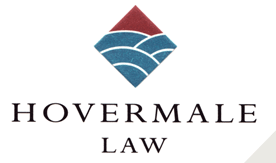A Maine Lawyer Representing Injured Persons Since 1981
Call 1-800-780-7231 for a no-cost case evaluation.
Search
LIENS: A problem growing out of control
 Picture this: You’ve worked five years on a case; taken twenty or thirty depositions; dealt with multiple liability and damage experts; researched the medicine and the applicable law; briefed yourself on potential evidentiary issues; defended a Motion for Summary Judgment; cajoled the defendants into responding to discovery; prepared Motions in Limine, Jury Instructions, Voir Dire questions, trial brief; prepared your opening statement … and the case settles for a sum you and your client are happy with. Relieved? Ready to pat yourself on the back for a job well done? Time to relax? No - the real work may be just beginning. You’ve now got to deal with liens. Health insurance, med pay, employer-sponsored self-funded health plans, MaineCare, Medicare, federal military health insurance benefits administered by Tricare, workers’ compensation, or a combination of these. All these have to be resolved and fully and finally negotiated before you can tell your client what he or she is going to walk away with in the case. Even if you’ve planned to deal with these liens, the eventual resolution can delay the settlement and the distribution of the settlement proceeds. If you haven’t planned for dealing with these liens, they will significantly delay the actual settlement of the case and the distribution of the money, much to the chagrin of your client.
Picture this: You’ve worked five years on a case; taken twenty or thirty depositions; dealt with multiple liability and damage experts; researched the medicine and the applicable law; briefed yourself on potential evidentiary issues; defended a Motion for Summary Judgment; cajoled the defendants into responding to discovery; prepared Motions in Limine, Jury Instructions, Voir Dire questions, trial brief; prepared your opening statement … and the case settles for a sum you and your client are happy with. Relieved? Ready to pat yourself on the back for a job well done? Time to relax? No - the real work may be just beginning. You’ve now got to deal with liens. Health insurance, med pay, employer-sponsored self-funded health plans, MaineCare, Medicare, federal military health insurance benefits administered by Tricare, workers’ compensation, or a combination of these. All these have to be resolved and fully and finally negotiated before you can tell your client what he or she is going to walk away with in the case. Even if you’ve planned to deal with these liens, the eventual resolution can delay the settlement and the distribution of the settlement proceeds. If you haven’t planned for dealing with these liens, they will significantly delay the actual settlement of the case and the distribution of the money, much to the chagrin of your client.
This discussion is not meant to delve into the law underlying each of these different types of liens. For that treatment I highly recommend Graydon Steven’s material prepared for the Litigation Institute sponsored by the Maine Trial Lawyers Association and the Maine Bar Association which took place in September. The written materials Graydon prepared are detailed, well-researched, well-written, and will provide you with a thorough reference work on this subject.
My discussion, as usual, will be much more general and designed to give you a practical heads up about what potential liens to be watching for early in the case, how to be as prepared as possible to deal with the liens at the end of the case, and how some of these can be negotiated.
-
Health Insurance
If some of the medical bills have been paid by a traditional health insurance company, you can usually obtain an ongoing printout of the charges related to the claim that have been paid by the carrier. Most of the major carriers are now contracting out the collection and resolution of liens to independent companies who are willing to compromise in a fair way. These companies recognize the common fund doctrine and will take off an equitable percentage for fees, costs of collection, and will negotiate based on the reasons for compromise and the practicalities of holding out and going to trial with a risk of receiving nothing.
-
ERISA employer-sponsored, self-funded employer health plans
This is an entirely different animal. Under ERISA the plan language can contain any type of lien recovery provisions the sponsor wants. The plans can prohibit lien reductions based on fees and costs of collection and exigencies of trial and demand a dollar for dollar reimbursement. Some plans are even offsetting for future medicals and won’t pay for any future causally related medical bills until the entire amount of the settlement is used up. Thus, it is important for counsel to examine the plan documents and determine the scope of lien recovery before entering into serious settlement discussions.
-
MaineCare
MaineCare lien recovery is governed by 22 M.R.S.A. §14. All of us know that statute imposes an affirmative duty on the part of counsel to inform MaineCare of settlement and negotiate with them. They cannot reduce for fees and proportionate costs of expenses. However, as a practical matter, the DHS representatives will in appropriate cases negotiate with you if there is a true hardship involved. The people at DHS who negotiate these liens are very professional, very knowledgeable, and have an excellent working understanding of how personal injury litigation works. In this author’s experience they have always been fair within the constraints imposed upon them by the statute.
One very important case every practitioner should be aware of is Arkansas Dept. of Health & Human Services vs. Ahlborn, 547 U.S. 268, 281-285, 291 (2006). In that case, the U.S. Supreme Court ruled that the state’s MaineCare programs were prohibited from obtaining reimbursements for those parts of the settlement that do not represent medical expenses. It is therefore important to allocate the part of the settlement or judgment that is meant to cover medical expenses.
-
Medicare
This is an area that could be changing as we speak. It can be a nightmare at the end of a case. In the past few years Medicare has changed its lien recovery contractors. CMS now works out of one office and is subject to long delays in processing of claims. It can be months between the time you contact them and ask them for lien information and when they are finally able to put something together. Once they do, most of the time it’s wrong. The problem with Medicare is that it is impossible to resolve claims over the phone. Communication has to be done by letter with delays of at least 45 days from the date they receive the settlement agreement information until you receive their final lien figure. At the very beginning of a case where you know Medicare is going to be involved in paying some of the client bills, it is wise to contact CMS and request a printout. This should be done at regular intervals during the pendency of the case. Medicare is required by regulation to reduce its lien for its proportionate share of cost of collection including fees and expenses. It will do that. Additionally, Medicare can reduce the amount of the lien for what they call ‘litigative probabilities”. However, they won’t do this in advance of the settlement. They need to know the amount of the settlement before they can process this. So, therefore it is impossible to tell your client exactly what they are going to walk away with in advance of the actual settlement agreement.
Then there is the current thorny question of future medical expenses. While the statute and the regulations are equivocal, Medicare is taking the position that all parties in a case protect Medicare’s interests involving future medical expenses. In workers’ compensation cases, under certain circumstances, CMS has been requiring a party to set aside a certain amount of the workers’ compensation settlement attributable to future medical expenses related to the injury, pay for the medical expenses until that fund is used up, and account to Medicare before Medicare will begin paying for those expenses. As of the date of this writing, there is no specific regulation applying that concept to personal injury claims, although there are many people that think that it already applies. Again, read Graydon Stevens’ materials. In workers’ compensation cases CMS takes the position that the amount of the set aside needs to be approved by CMS under certain circumstances. Whether this applies to general liability cases is unclear. However, Medicare is taking the position that in all settlements Medicare’s future liability to pay should be in some way protected.
-
Military Health Benefits
If your client has been in the military or is married to someone who is or has been in the military and is covered by the military health benefit system administered by Tricare, you will have a very difficult time negotiating any lien they have. They take the position that they are the federal government and they can take back whatever they want. Informally, they will negotiate in cases of permanent long term disability or where the settlement amount is low - below $50,000.00.
-
Workers’ Compensation
Under 39-A M.R.S.A. §107, when a work related injury is sustained under circumstances creating in a third person a legal liability to pay damages, the employee can pursue that third party claim but the comp carrier has a lien on the recovery in the amount of the benefits paid. The lien extends to the entire amount of the third party recovery including those portions allocable to pain and suffering. They must deduct a proportionate share for cost of collection including attorney’s fees. If the settlement is high enough, and the comp carrier is continuing to pay benefits, they can take a “holiday” until the third party settlement is exhausted. They do not have a lien on the portion of the third party recovery allocated to loss of consortium.
-
Conclusion
Resolving lien issues can involve as much work as the case itself. It is a tedious, time consuming process but it has to be done in every case. The last thing we want is to fully and finally distribute the proceeds of a settlement and six months later receive a letter from a lien holder which has not been taken into consideration.




